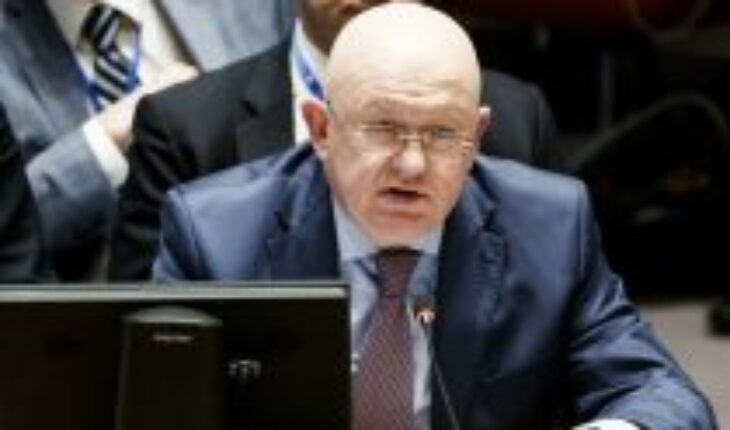The fourth article of the United Nations states that “all other peace-loving States which accept the obligations set forth in the present Charter and which, in the opinion of the Organization, are able and willing to fulfil those obligations may be Members of the United Nations.”
Russia today is clearly not embracing peace. However, not only does it remain a member, but this Saturday, April 1, it will assume the presidency of the UN Security Council, one of the most important organizations worldwide, since it has certain special attributions that surpass even the General Assembly.
By regulation and almost mechanically, each member takes turns – in English alphabetical order – in the presidency every month, during March Mozambique has been there. For this reason, some international analysts have downplayed this fact, saying that “the presidency of the Council basically presides over the meetings and deals with much of the administrative work, but has very little power to influence the actual decisions that the plenary makes.”
In fact, it should be remembered that Russia was at the head of the body in February 2022, when it launched the attack on Ukraine.
“It’s a symbolic issue, but an important one. Because Russia is becoming a kind of pariah country. It is very questioned internationally and the support it has, apart from China, is from nations in its own orbit, such as Bioelorrusia. The vast majority of the world condemns Russia’s actions in Ukraine and that is no small matter. It holds the presidency, but it does not look good in terms of the international image, and that image gives more or less legitimacy to certain resolutions adopted by the Council itself. It should matter because it is the most important instance in terms of peace and security globally,” explains analyst Mladen Yopo.
He adds that preventing Russia from assuming the presidency is virtually impossible. “You would have to have unanimity in the Council and Russia has veto power.”
Council of Allies
The Security Council is composed of fifteen countries, each entitled to one vote. Five of them are permanent (the four winning powers of World War II: Russian Federation, United States, United Kingdom and France + China), and have the right of veto. Among the 10 non-permanent members, Latin America has two seats, which are currently occupied by Brazil (which ends this year) and Ecuador (expires in 2024). Chile was a member for the last time in the period 2014-2015 and the former foreign minister, Heraldo Muñoz, had to preside over the entity.
For years the possibility of reforming the organism has been discussed, however, not a single syllable has been advanced. It has been argued on numerous occasions that it is not being representative of the world order. Large countries such as India or Brazil have no permanent representation. It does not reflect how power is today at the international level, it continues to focus on the victorious powers of World War II, says another expert on the subject.
Follow us on
The wolf tending the sheep: Russia assumes presidency of the UN Security Council
March 31, 2023 |





